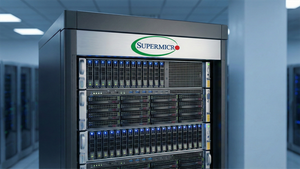
The quantum computing sector has recently experienced a significant surge in stock prices, signaling heightened interest and investment in this nascent technology. This rally is driven by a combination of major investment initiatives, technological breakthroughs, and increased government backing, presenting both substantial opportunities and considerable risks for investors and the broader market.
In mid-October 2025, several leading quantum computing companies, including D-Wave Quantum (NYSE: QBTS), IonQ (NYSE: IONQ), Quantum Computing Inc. (NASDAQ: QUBT), and Rigetti Computing (NASDAQ: RGTI), saw their stock prices jump by double-digit percentages. Some of these companies have recorded impressive surges of over 700% to 5,000% over the past year. This phenomenon, often dubbed "quantum computing mania," reflects a growing belief in the transformative potential of quantum technology, positioning it as a potential "next big theme" following the artificial intelligence boom. However, with this excitement comes inherent volatility and speculative risk, as the industry is still in its early developmental stages with commercial applications largely years away.
The Quantum Rush: Catalysts and Market Reactions
The recent surge in quantum computing stocks is not an isolated event but rather the culmination of several significant developments converging in mid-October 2025. The most impactful catalyst was an announcement from financial behemoth JPMorgan Chase, unveiling its "Security and Resiliency Initiative." This ambitious program commits an astounding $1.5 trillion over the next decade to industries deemed critical for national economic security. Crucially, an initial allocation of up to $10 billion from this fund is earmarked for direct equity and venture capital investments in "frontier and strategic technologies," explicitly naming AI, cybersecurity, and quantum computing. While JPMorgan Chase did not specify particular quantum companies, this declaration served as a powerful vote of confidence, signaling institutional validation for the sector's long-term potential and immediately sparking a buying frenzy among investors.
Adding further fuel to the rally, reports emerged detailing a potential strategic shift within the U.S. government. The CHIPS Research and Development Office is reportedly considering acquiring direct equity stakes in quantum computing firms, offering at least $10 million each. This move is part of a broader national strategy to secure competitiveness and national security in critical technological domains. The Trump administration's reported aim is to ensure that taxpayers share in the potential returns when federal funds support these cutting-edge technologies, moving beyond traditional grants and subsidies towards a more direct investment model. This governmental endorsement not only provides financial backing but also solidifies quantum computing's status as a strategic national priority.
Beyond financial and governmental impetus, tangible technological breakthroughs have significantly contributed to the bullish sentiment. Google, a key player in quantum research, recently announced a verifiable quantum advantage with its "Willow" quantum chip. This breakthrough demonstrated an astonishing 13,000x speedup over classical supercomputers in physics simulations, showcasing the raw computational power quantum machines can wield. Concurrently, IonQ (NYSE: IONQ) achieved a major technical milestone, reporting 99.99% fidelity in two-qubit gates. This achievement is critical for reducing error rates, a persistent challenge in quantum computing, and accelerates the industry's path towards commercially viable, fault-tolerant quantum computers. These scientific advancements provide concrete evidence of progress, mitigating some of the speculative nature of the sector and offering a glimpse into its transformative capabilities.
The immediate market reaction to these developments was swift and dramatic. Pure-play quantum computing stocks, already known for their volatility, experienced rapid double-digit gains. Retail investors, sensing a "fear of missing out" (FOMO) akin to previous tech booms, flocked to these stocks, further amplifying the upward momentum. The market's enthusiasm is also underpinned by optimistic long-term projections; McKinsey estimates the global quantum technology market could reach $97 billion in annual revenue by 2035, with quantum computing alone accounting for up to $72 billion. Other analysts project the market to exceed $20 billion by 2030, growing at a compound annual growth rate (CAGR) of nearly 42%. This combination of institutional investment, government support, scientific breakthroughs, and promising market forecasts has created a potent environment for the current quantum stock rally, despite the inherent early-stage risks of the technology.
Companies Navigating the Quantum Wave: Winners and Losers
The recent surge in quantum computing stocks has created a clear distinction between potential winners and those facing significant challenges within the nascent industry. Companies at the forefront of quantum hardware and software development, particularly those demonstrating tangible technological progress and securing substantial funding, are poised to benefit immensely. The "Quantum Four"—D-Wave Quantum (NYSE: QBTS), IonQ (NYSE: IONQ), Quantum Computing Inc. (NASDAQ: QUBT), and Rigetti Computing (NASDAQ: RGTI)—have already seen their stock prices skyrocket, with some experiencing gains of 700% to 5,000% over the past year. These companies, characterized by their pure-play focus on quantum technology, are direct beneficiaries of increased investor interest and the influx of capital from initiatives like JPMorgan Chase's $1.5 trillion investment and potential U.S. government equity stakes.
IonQ (NYSE: IONQ), for instance, stands out with its recent announcement of achieving 99.99% fidelity in two-qubit gates, a critical milestone for error reduction and commercial viability. This technical prowess, combined with its full-stack approach to quantum computing, positions it strongly to attract further partnerships and investment. Similarly, Rigetti Computing (NASDAQ: RGTI), despite facing previous financial pressures, has seen a dramatic resurgence in its stock price, indicating renewed investor confidence in its superconducting quantum processor technology. D-Wave Quantum (NYSE: QBTS), a pioneer in quantum annealing, continues to leverage its established market presence and partnerships to expand its quantum-as-a-service offerings. Quantum Computing Inc. (NASDAQ: QUBT), focusing on quantum-inspired solutions and software, stands to gain from broader adoption of quantum applications across various industries.
However, the high-stakes nature of quantum computing also means that companies failing to innovate, secure adequate funding, or demonstrate a clear path to commercialization could face significant headwinds. Many pure-play quantum companies are still pre-revenue or generate minimal income, relying heavily on continuous capital raises to fund their intensive research and development. This dependency on external funding means that smaller, less established firms, or those with less compelling technological roadmaps, might struggle to keep pace with better-funded competitors. The risk of shareholder dilution is also substantial, as companies frequently issue new shares to secure necessary capital, potentially eroding the value for existing investors.
Furthermore, traditional tech giants like Google (NASDAQ: GOOGL), IBM (NYSE: IBM), and Microsoft (NASDAQ: MSFT), while not pure-play quantum stocks, are significant players in the quantum ecosystem. Their deep pockets, extensive research capabilities, and existing client bases give them a strategic advantage in developing quantum hardware and software. Google's "Willow" quantum chip, demonstrating quantum advantage, underscores the competitive pressure these larger entities exert. While their stock prices may not experience the same explosive percentage gains as smaller pure-plays, their long-term strategic positioning in quantum computing could solidify their market dominance in the future. Companies that rely on classical computing solutions for problems that quantum computing promises to revolutionize, such as certain cryptographic services or complex optimization tasks, could eventually face disruption if they fail to adapt and integrate quantum-resistant or quantum-enhanced technologies into their offerings.
Broader Significance: A New Era for Deep Tech
The recent quantum stock surge transcends a mere market rally; it signifies a pivotal moment for the broader "deep tech" industry and heralds a new era of strategic investment in frontier technologies. This event fits squarely into a broader trend of increasing recognition for technologies that promise fundamental shifts in computational power, data security, and scientific discovery. Following the transformative impact of artificial intelligence, quantum computing is now being viewed as the next wave of innovation, attracting significant capital and talent. This heightened interest in deep tech could catalyze further investment in other cutting-edge fields such as advanced biotechnology, new energy solutions, and space technology, fostering an ecosystem ripe for groundbreaking advancements.
The ripple effects of this quantum momentum are far-reaching, impacting competitors, partners, and various adjacent industries. In the realm of cybersecurity, the looming threat of "Q-Day"—the theoretical point at which sufficiently powerful quantum computers could break existing cryptographic standards—is driving urgent investment in quantum-resistant encryption. Companies like IBM (NYSE: IBM) and Google (NASDAQ: GOOGL) are actively developing and promoting post-quantum cryptography solutions, creating new market opportunities for those specializing in secure data transmission and storage. For industries reliant on complex optimization, such as logistics, finance, and materials science, quantum computing promises unprecedented problem-solving capabilities, potentially revolutionizing supply chain management, financial modeling, and drug discovery. Partnerships between quantum computing firms and industry leaders are expected to proliferate as businesses seek to leverage this nascent technology for competitive advantage.
Regulatory and policy implications are also becoming increasingly prominent. The U.S. government's consideration of direct equity stakes in quantum firms, as reported in October 2025, represents a significant policy shift. This move reflects a national security imperative, aiming to ensure domestic leadership in a technology deemed critical for future economic and military superiority. Such government involvement could lead to new funding models, potentially involving warrants, intellectual property licenses, royalties, or revenue-sharing agreements, beyond traditional grants. This strategic intervention underscores a global race for quantum supremacy, with nations like China and the European Union also heavily investing in their own quantum initiatives. The regulatory landscape will likely evolve to address ethical considerations, data privacy, and intellectual property rights as quantum technology matures.
Historically, the current quantum computing boom draws parallels to the early days of the internet and the artificial intelligence revolution. In both instances, initial speculative fervor was followed by periods of consolidation, technological maturation, and eventual widespread commercial adoption. Like its predecessors, quantum computing is currently characterized by high risk, significant capital requirements, and a long runway to mass market integration. However, the foundational nature of the technology—promising to tackle problems intractable for even the most powerful classical supercomputers—suggests a similar trajectory towards profound societal and economic impact. The current enthusiasm, backed by institutional and governmental support, indicates that while the path may be volatile, the long-term potential is substantial, positioning quantum computing as a cornerstone of future technological advancement.
What Comes Next: Navigating the Quantum Future
The immediate aftermath of the quantum stock surge will likely be characterized by continued volatility and intense scrutiny. In the short term, investors can expect further price fluctuations as the market digests the implications of recent announcements and awaits more concrete developments from key players. Upcoming earnings reports, such as Rigetti Computing's (NASDAQ: RGTI) Q3 2025 report, will be critical in providing insights into the financial health and operational progress of these companies, potentially triggering further market reactions. The speculative "quantum computing mania" might persist, attracting more retail investors and potentially leading to short-term bubbles and corrections. Companies will be under pressure to demonstrate tangible progress, whether through new technological milestones, strategic partnerships, or early commercial applications, to sustain investor confidence.
Looking further ahead, the long-term possibilities for quantum computing are transformative, but the path remains complex. We can anticipate continued significant investments from both public and private sectors, driven by the strategic importance of the technology. Governments worldwide will likely escalate their efforts to secure quantum supremacy, leading to increased funding for research, development, and talent acquisition. This could translate into more government contracts and partnerships for leading quantum firms. On the commercial front, the next three to five years are expected to see the emergence of more "quantum advantage" demonstrations for specific, niche problems, moving beyond academic benchmarks to real-world applications in areas like drug discovery, financial modeling, and advanced materials design. However, widely accessible, fault-tolerant universal quantum computers capable of solving a broad range of problems are still likely decades away.
Potential strategic pivots or adaptations will be crucial for companies in this evolving landscape. Hardware manufacturers will need to continuously innovate to improve qubit stability, coherence times, and error correction capabilities. Software developers will focus on creating more accessible programming tools and algorithms to unlock the potential of current and future quantum machines. Companies across various industries will need to assess how quantum computing could disrupt their operations and begin investing in quantum-resistant solutions (e.g., in cybersecurity) or exploring quantum-enhanced capabilities (e.g., in R&D). This will foster a new ecosystem of specialized service providers and consultants focused on quantum integration and application development.
Market opportunities will emerge not only in pure-play quantum hardware and software but also in adjacent sectors. The development of cryogenics, specialized electronics, and quantum-safe security solutions will present significant growth avenues. Challenges will include the high cost of development, the scarcity of specialized talent, and the need to manage investor expectations against the long timelines for commercial viability. The risk of technological obsolescence is also present, as different quantum computing modalities (e.g., superconducting, trapped ion, photonic) compete for dominance. Potential scenarios range from a gradual, steady integration of quantum capabilities into classical workflows to a more disruptive "quantum leap" if a major breakthrough accelerates development significantly. Ultimately, the next phase will be about translating theoretical promise into practical, scalable solutions.
Comprehensive Wrap-Up: The Quantum Horizon
The recent surge in quantum computing stocks marks a significant inflection point, underscoring the growing recognition of quantum technology's potential to redefine computational capabilities and reshape global industries. The key takeaways from this event are multi-faceted: a confluence of major institutional investments, notably from JPMorgan Chase, coupled with increased government backing and tangible technological breakthroughs from entities like Google and IonQ (NYSE: IONQ), has ignited unprecedented investor interest. This has propelled pure-play quantum companies to dramatic stock gains, positioning quantum computing as a frontrunner in the "deep tech" investment landscape, following in the footsteps of artificial intelligence.
Moving forward, the market will likely remain highly dynamic and characterized by both immense opportunity and considerable risk. While the long-term outlook for quantum computing is undeniably bullish, with projections of a multi-billion-dollar market within the next decade, the industry is still in its nascent stages. Investors should anticipate continued volatility, as companies navigate the arduous path from research and development to commercialization. The high capital intensity, the need for continuous innovation, and the long timelines for widespread adoption mean that not all current players will succeed. Diligence will be paramount, as fundamental financial health and a clear technological roadmap will increasingly differentiate sustainable ventures from speculative bets.
The lasting impact of this quantum stock rally will likely be a permanent shift in how capital markets view and fund frontier technologies. It signals a maturation of the deep tech investment thesis, moving beyond venture capital into mainstream institutional and governmental support. This could foster a more robust ecosystem for innovation, accelerating the development of not just quantum computing but also other strategically important technologies. The race for quantum supremacy, fueled by national security concerns, will intensify, driving further public-private partnerships and international competition.
For investors, the coming months will demand careful observation. Key indicators to watch include further technological milestones, such as improvements in qubit count and error rates, as well as announcements of significant commercial partnerships or early-stage revenue generation from quantum solutions. Regulatory developments, particularly concerning government funding models and international standards for quantum security, will also be crucial. Ultimately, while the "quantum leap" offers tantalizing prospects for exponential growth, it remains a long-term play, requiring patience, a high tolerance for risk, and a discerning eye for companies with solid fundamentals and a credible path to unlocking the transformative power of quantum mechanics.
This content is intended for informational purposes only and is not financial advice





